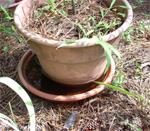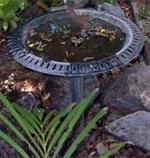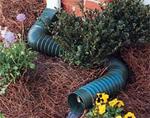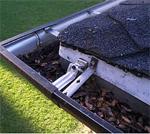Mosquito Prevention & Information
Fight the Bite
Each summer, Alexandria sees a rise in mosquitoes, especially Asian Tiger mosquitoes. These bugs are annoying pests, but they can also cause serious health problems.
Different mosquitoes, including some that can live in Alexandria, can carry diseases and pass them on by biting us. And, itching any mosquito bites too much can lead to infections.
You can fight the bite with the info below.
Preventing Bites
Wearing long, loose, and light-colored clothing and using proper bug spray can protect your skin. Click the drop downs for more.
Picking a Bug Spray
The best repellent, spray or wipe, is one that you will actually use. Here are some options, in order from most to least useful:
- DEET is the most effective and best-studied repellent available. DEET-based repellents are available with different amounts of DEET. Labels can tell you the repellent will last before you need to spray or wipe again.
- Picardin is a man-made repellent. It has no color and doesn’t smell. It is available in different forms and provides long-lasting protection similar to DEET.
- IR-3535 (Merck 3535) is a pesticide. It has been used in the U.S. since the 2000s.
- Oil of Lemon Eucalyptus (OLE) is a natural plant-based repellent. OLE repellents do not protect as well as products with a lot of DEET, but they can offer some protection. Don’t use OLE sprays or wipes on children younger than 3.
How to Spray or Apply
- Follow the label instructions.
- Spray or wipe on skin and clothing. Mosquitoes can land and bite through clothes.
- Do not apply repellents over cuts, wounds or irritated skin.
- Do not spray on your face. Spray on hands first and apply from hand to face.
- Wash your hands after you spray or wipe so you don’t get chemicals in your eyes or mouth.
Bug Spray and Kids
Always follow label instructions to protect your child safely.
Most sprays and wipes can be used on children older than 2 months. Keep in mind:
- Babies under 2 months old should not wear spray or wipes. Protect them by keeping them inside or putting a protective net on their carrier.
- Do not use products with Oil of Lemon Eucalyptus (OLE) on children under 3 years old.
- Pregnant and nursing women can use bug spray and wipes as normal.
Travel Safety
Mosquitoes are able to survive in many places around the world, and in some places, mosquitoes can carry dangerous diseases that are able to make us very sick. Check out this CDC mosquito travel safety page to see current risks worldwide and travel safety tips.
Mosquito Prevention Tips
The best way to prevent mosquitoes from living near you is by cutting off water sources because water is where mosquitoes lay their eggs. Read how to remove or treat standing water around your home, business, or space.
1. Start by finding standing water near you.

|

|

|

|
| Flowerpot Dish Collecting Water | Bird Bath Collecting Water | Corrugated Drain Pipe Collecting Water | Clogged Gutter Collecting Water |
Use our checklist (English | Español | አማርኛ | أربي) to find and address potential water sources.
- Go back to water sources regularly: Once you’ve found standing water, dump it regularly. Make sure you scrub containers like flowerpots, buckets, garbage can lids, bird baths, etc.
- Once a month, apply larvicide, which will kill mosquito babies, to standing water you cannot empty or drain.
- Every 2-3 weeks, apply pesticides to plants around your home. Follow instructions closely.
- You can also take on in bigger projects like:
- Filling in puddles or areas that stay soggy for over a week after rain.
- Use screens on your windows and doors. Repair holes to keep mosquitoes out.
- Stock any decorative ponds with fish or aerate them.
City Services
The Alexandria Health Department helps residents protect themselves from mosquitoes and the illnesses they carry. The City does not offer pesticide application.
Mosquito Questions-and-Answers
Call Alexandria Health Department Environmental Health Division at 703.746.4910.
Mosquito Identification
Kill it or one like it and call Alexandria Health Department. We can identify it and let you know about any diseases it may carry.
City drains blocked near you?
Reach out to Alex311.
Pest Control and Pesticide Information
Virginia’s Department of Agriculture and Consumer Services compiles a list of certified pesticide applicators. Call VDACs for guidance on picking a pest control service and making sure they’re using these chemicals safely and effectively.